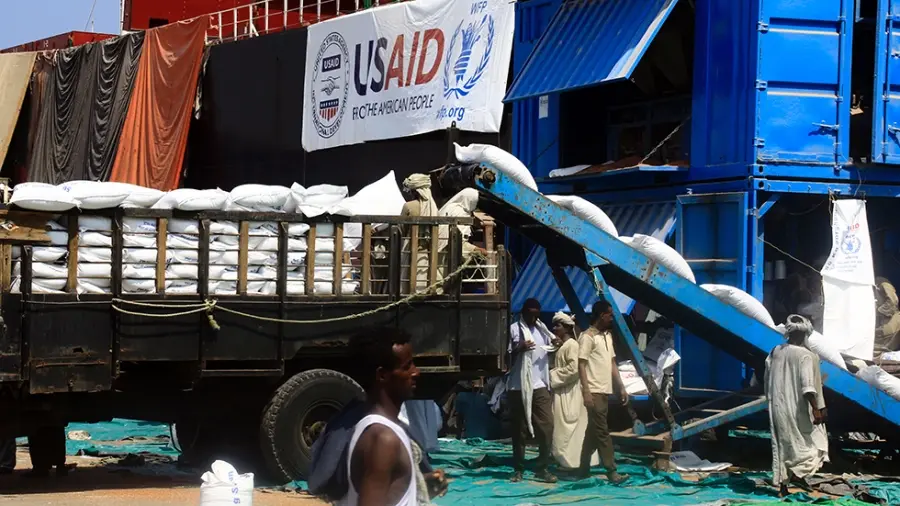International aid and assistance & Liberia's Overreliance
- Marie S.

- Mar 20, 2020
- 3 min read

International aid and assistance have played a significant role in Liberia's economic and social development since the end of the civil war in 2003. Donor countries and international organizations have provided substantial resources to help rebuild infrastructure, improve healthcare and education systems, and promote economic growth. However, it is essential to examine how these resources are utilized and their impact on the country's development.
International aid and assistance have played a significant role in Liberia's development since the end of the civil war. In 2018, Liberia received over $1 billion in foreign aid, which accounted for around 14% of the country's GDP. This aid has been provided by various sources, including international organizations such as the World Bank and the International Monetary Fund, as well as donor countries such as the United States, China, and the United Kingdom.
The aid and assistance provided to Liberia have been used for various purposes, such as infrastructure development, health and education programs, and poverty reduction initiatives. However, there have been concerns about the effectiveness and transparency of aid programs in Liberia, with some arguing that aid money has not always been used for its intended purposes.
International Aid and Assistance:
According to data from the World Bank, Liberia received $267.4 million in official development assistance in 2019. The largest contributors to aid were the United States, the World Bank, and the African Development Bank. Aid and assistance have been provided in various sectors, including infrastructure development, healthcare, education, and private sector development.
One of the primary areas where aid has been directed is infrastructure development, particularly in the transport sector. Donor countries and international organizations have funded road rehabilitation projects to improve connectivity within the country and with neighboring countries. For example, the World Bank-funded Liberia Road Asset Management Project aims to improve the condition and management of the country's road network. Additionally, the African Development Bank has funded the rehabilitation of the Roberts International Airport, which is expected to increase the number of tourists and business travelers to Liberia.
Another significant area where aid has been directed is healthcare. The Ebola outbreak in 2014-2015 highlighted the urgent need to strengthen the healthcare system in Liberia. Donor countries and international organizations have provided resources to build and equip health facilities, train healthcare workers, and improve disease surveillance systems. For example, the United States Agency for International Development (USAID) funded the building and equipping of the Redemption Hospital in Monrovia, which provides maternal and child health services.
Impact of International Aid and Assistance:
The impact of international aid and assistance on Liberia's development has been significant. Infrastructure development projects have improved connectivity within the country and with neighboring countries, which has the potential to promote economic growth and development. The rehabilitation of the Roberts International Airport is expected to increase the number of tourists and business travelers to Liberia, which could boost the country's economy.

Healthcare has also been significantly impacted by international aid and assistance. The strengthening of the healthcare system has improved access to healthcare services for Liberians, particularly in rural areas. This has the potential to improve health outcomes and reduce the burden of disease in the country.
However, there are also challenges in the effective utilization of aid and assistance. Corruption and mismanagement of resources can undermine the impact of aid and lead to a lack of accountability. It is essential to ensure that aid is utilized effectively and transparently to achieve its intended impact.
Conclusion:
In conclusion, international aid and assistance have played a significant role in Liberia's economic and social development. The resources provided have been directed towards infrastructure development, healthcare, education, and private sector development. The impact of aid has been significant, particularly in improving healthcare access and infrastructure development. However, there are challenges in the effective utilization of aid, particularly in addressing corruption and ensuring accountability. It is essential to continue monitoring and evaluating the impact of aid and addressing these challenges to ensure effective utilization and sustainable development.
Furthermore, while aid has undoubtedly played a significant role in Liberia's development, it is important to note that aid dependency can also have negative consequences. Overreliance on aid can lead to a lack of accountability and transparency in government and undermine the country's efforts towards self-sufficiency and sustainable development.
To address these issues, there have been calls for greater transparency and accountability in aid programs in Liberia, as well as efforts to promote domestic resource mobilization and private sector investment. The government has also developed a national development plan, known as the Pro-Poor Agenda for Prosperity and Development, which aims to reduce poverty and promote economic growth through a combination of public and private sector initiatives.




Comments